You may have heard that a title report could be required in order to determine where you can build your accessory dwelling unit (ADU), but do you know what this process entails? Read on to learn what a title report is, what information a title report covers, when you need a title report to design and build an ADU in San Diego. And before we get into the specifics of ADU-related title issues, let’s cover some basic definitions.
What’s the difference in a title report and title insurance?
Both a title report and title insurance are both important tools that help protect homeowners and buyers in real estate transactions. The report can help identify potential issues with a property’s title, while title insurance provides financial protection against those issues.
A title report is a document that shows the history of a piece of property, including information about past ownership, liens, and any other claims or encumbrances on the property. It is typically ordered by a buyer or lender as part of the process of purchasing or financing a home. A title report can help identify any potential issues with the property’s title, such as outstanding mortgages or unresolved legal disputes.
Title insurance, on the other hand, is a type of insurance policy that protects homeowners and buyers from financial losses related to problems with the property’s title. This can include issues that were not identified in the title report, such as undisclosed liens or fraud. Title insurance is typically required by lenders as a condition of approving a mortgage.
What is a title report or a preliminary title report?
A Title Report is the document containing the results of the title search, which is required by most mortgage lenders and insurers when there is a transfer of ownership. A Preliminary Title Report is essentially the same, but is not an insurable document; it is informational only and used most often by jurisdictions and property owners as part of the development process. When building an accessory dwelling unit (ADU) in San Diego, a Preliminary Title Report is used. Both of these serve to provide more information about the ADU you are looking to build, so all parties involved have a picture of the property your unit will be built on.
What is included in a title report?
Both a Title Report and a Preliminary Title Report contain the following information:
- The property or parcel of land in question.
- The legal description of the parcel of land.
- The owner of record for the property.
- Any requirements or restrictions or notes about the property.
- A listing of easements, liens, encumbrances, and other information affecting the title to the property as of the time and date of the report.
What does a title report (or preliminary title report) tell you about where you can build your accessory dwelling unit?
The information in the report is from a public records search; most or all of the records are located at the County Recorders Office located in the same county as the parcel of land. It contains all publicly available knowledge an owner or buyer would need related to the property. This is important as it relates to the potential development of an accessory dwelling unit; it may directly influence the location and placement of the guest house on the property. This is because the title report may call out pre-existing setback requirements that each jurisdiction has on the property, which would supersede ADU regulations.
For example, if there is a pre-existing sewer easement on the property, in addition to 4’ setbacks on the property, the buildable envelope of where the ADU may be placed will be reduced. Based on lot size, this may directly impact how large of an ADU you can build, regardless of what California laws state are granted “by right.” As such, if the existing recorded easement and setbacks leave only an 800 square foot developable envelope, the homeowner will not be allowed to develop a casita any larger than 800 square feet, regardless of the fact that the jurisdiction may allow for ADUs up to 1,200 square feet.
What are the limitations of a preliminary title report?
As it relates to development of an ADU, what the Title Report does not tell you is whether there are any non-recorded private easements or restrictions on the property that either the owner or a prior owner may have entered into. These non-recorded easements or restrictions would have the same limiting factors as recorded easements, only a private citizen (the dominant tenement) look to enforce them via injunctive relief through the courts (would be able to sue the property owner to enforce the non-recorded easement or restriction). Any such action would then become public record and would be thereafter recorded against the property, which would thereafter show up on the Title Report and reduce the developable envelope (as well as have court costs associated with the litigation). Read more about easements.
When should I get a title report for my ADU?
If you suspect there may be an easement or restriction on your property, we recommend running a preliminary title report as part of the ADU feasibility study. This enables us to determine the best location for the ADU based on all property constraints. If you wait to run the title report and end up designing a granny flat in an area covered by an easement, the city will likely catch this oversight in the plan check process. You would then need to redesign the accessory dwelling unit, which would of course take additional time and money. Thus, to be safe, it is best to run a report if there is any question of your property.
How can I obtain a title report for my ADU project?
You can get a preliminary title report directly from a title company. Your contractor should have contacts they can put you in touch with, to ensure you work with a reputable company. Title reports typically cost $1000-$1500 and take up to a week to obtain.
Can I use an existing copy of a preliminary title report?
If you have recently purchased or refinanced the property, you may have a usable copy of a title report. If that copy was digital, you can ask the title company for a new version (although the title company is under no obligation to provide it and may charge a fee). Some cities will only accept title reports from the last 5 years. This is because new liens, easements or other encumbrances may have been placed on the property since the last title report (or preliminary title report) was issued that may impact the placement of the ADU on the property.
Title reports are useful to ensure your ADU build runs as smoothly as possible. It provides you and your contractor with a lot of valuable information that serves to eliminate any surprises you may encounter during the build. As with most aspects of a build, it is better to be safe than sorry- so, if you are questioning whether or not a title report would benefit you, it most likely is. If you have any concerns along the way, your contractor will be able to walk you through the necessary steps.
Do I need to inform my title insurance provider if I’m adding an ADU?
In short, no, you do not need to inform your title insurance provider that you are adding an accessory dwelling unit. Title insurance policies are generally only issued when a “transaction” is being contemplated, for instance for a new loan (refinance) or selling/buying the property. As part of the new transaction, the property owner will most likely be asked to complete an “Owner’s Declaration” regarding any work completed on the property within the last six months.
Generally, there are no recorded documents that would impact a title report or insurance when it comes to residential construction because there is no “transaction.” As such, there will be no public record of the ADU on title (though there will be building permits). One scenario where the ADU would come up on a title report is if a contractor wasn’t paid for the work (via a Mechanic’s Lien).
Example: Any time someone makes improvements on a property, it could be subject to a lien if the contractor completing the work has not been paid. This lien would be recorded against the title of the property, which would be the only recordable action related to an ADU that would be picked up on a title report.
We really know our stuff when it comes to ADUs, as we have extensive experience in design, development, and implementation. While we put a lot of effort into providing accurate and up-to-date information, it’s important to keep in mind that the ADU space is always evolving due to regulation changes and differences in local interpretation. That means that the details discussed in the blog might be subject to change.

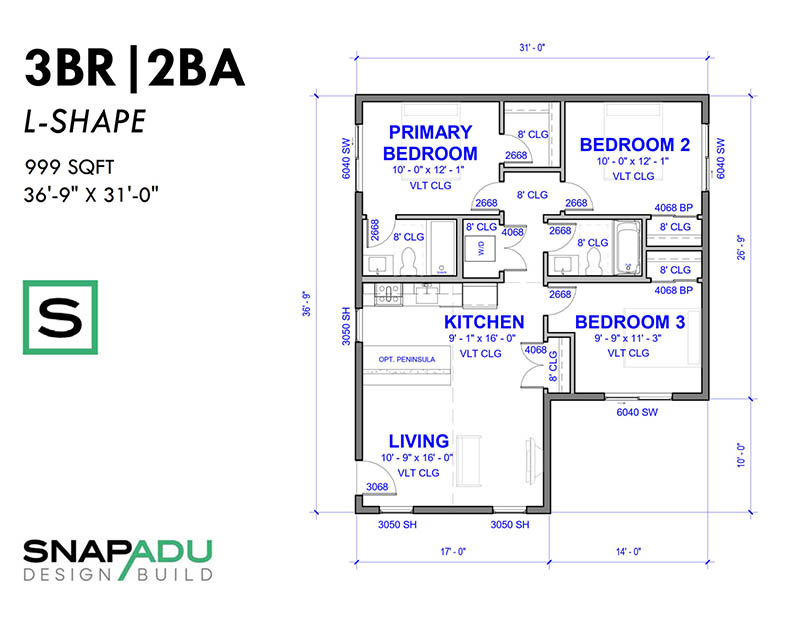
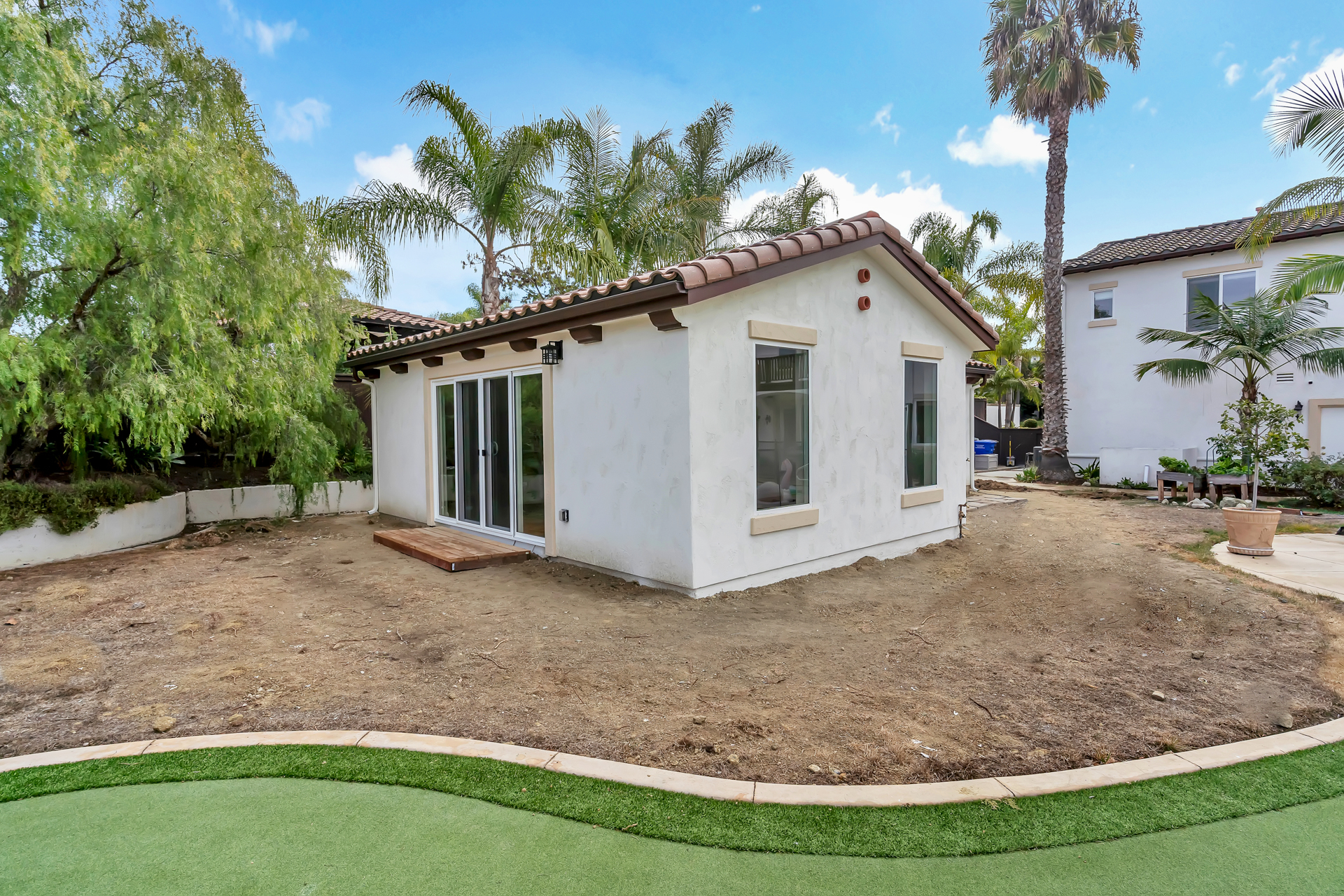
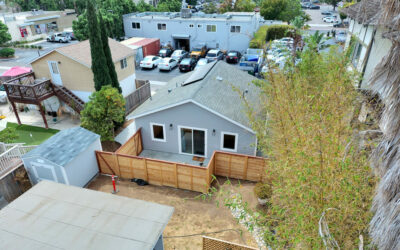
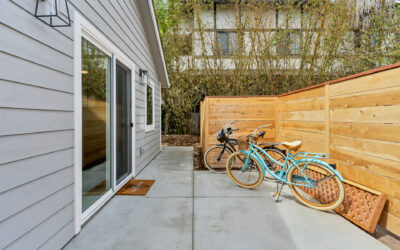
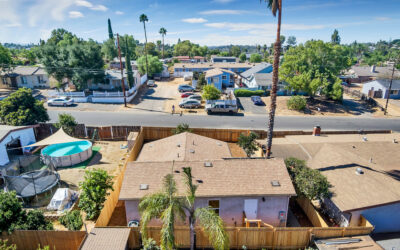
0 Comments